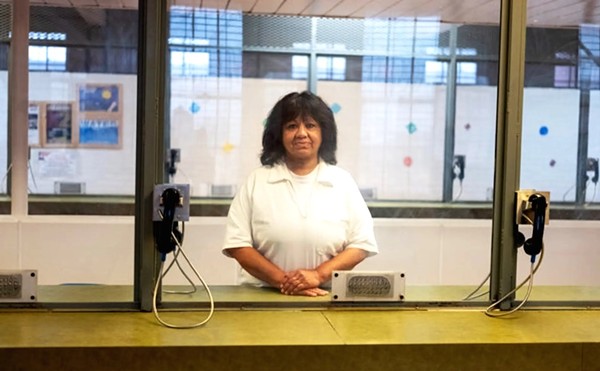|
Chicano, Tejano, Mexicano, Latino, let's call the whole thing off Blame Richard Nixon. Many individuals of Mexican, Cuban, Puerto Rican, Central American, or South American heritage living in the United States call themselves Hispanic, a term first imposed during the Nixon administration as a catch-all census category. Others prefer its more pleasant substitute, Latino. Some might even remember antiquated categorizations such as Spanish-American or Latin, which were ostensibly innocuous references to a European heritage. Some Mexican immigrants and those who still feel culturally connected to their country call themselves Mexicanos or Mexicans, while others may self-identify as Chicanos, Mexican-Americans, Tejanos, or simply, Americans. (In Spanish, nouns ending in o are masculine, but they can also refer to all members of a group. Nouns ending with a refer only to females; Latinas, Chicanas, and Mexicanas rightfully point out that Spanish grammar tends to ignore them.)
Madrid, a distinguished professor of humanities, will elaborate on the terms' meanings and significance at a discussion, "Migration in the United States: Semantics of Identity," sponsored by UTSA and UNAM-San Antonio. Joining him on the panel are: José Moreno de Alba, president of the Mexican Academy of the Spanish Language, who will explain Spanish identifiers for Mexicans abroad and Mexicans in the U.S. Vicente Quirarte, dean of the UNAM Institute of Bibliographical Studies, who will give a historical overview of Mexican immigration to the U.S. UTSA Associate Professor of Social Studies and Public Policy Harriet Romo, who will present her findings on a statistical study she conducted about Hispanic identity UTSA professor Francisco Marcos-Marín, who will speak on parallels between African immigration to Spain and Mexican immigration to the states. Terminology is only a starting point for a larger discussion about identity and heritage. Panel moderator Mario Melgar, director of UNAM-San Antonio, plans to start a discussion about whether Mexicans who come to the U.S. retain their Mexican identity and heritage, or lose it and become American - an issue, he says, that is "on the mind of everybody that is Hispanic in the United States." Marcos-Marín says that cultural development in the U.S. would benefit from recognizing its multiple origins. Those here can remain conscious of their own heritage and call themselves American, because "once you live, work, are paid and pay taxes in a country you are a member" of that country. "Your identity is not like a jacket or a pair of trousers that you can change. It is something that constitutes you as a human being." Marcos-Marín strongly advocates that immigrants assimilate into U.S. society. Those who reject Americanness, he feels, will "condemn" their children to a marginalized existence. "We are not defining separately as Hispanics," he says. "Our strength is combined with the strength of all Americans." In contrast, Madrid proudly calls himself a Mexicano, which he bases upon cultural practices, rather than national origin. He was born and raised in New Mexico, as were his ancestors, descendants of indigenous peoples and Spanish settlers who were incorporated into the U.S. after the Spanish-American War. "We have a series of identities" - including the terms Mexicano, Mexican-American, Hispano, and Chicano - that reflect this complexity, he says. This sense of self overcomes the notion that "you can only be a part of the United States if you homogenize yourself and give up your culture and language." •
|
What's in a name?
Thu, Sep 23, 2004 at 12:00 am
Tags:

KEEP SA CURRENT!
Since 1986, the SA Current has served as the free, independent voice of San Antonio, and we want to keep it that way.
Becoming an SA Current Supporter for as little as $5 a month allows us to continue offering readers access to our coverage of local news, food, nightlife, events, and culture with no paywalls.
Scroll to read more San Antonio News articles
Newsletters
Join SA Current Newsletters
Subscribe now to get the latest news delivered right to your inbox.
















